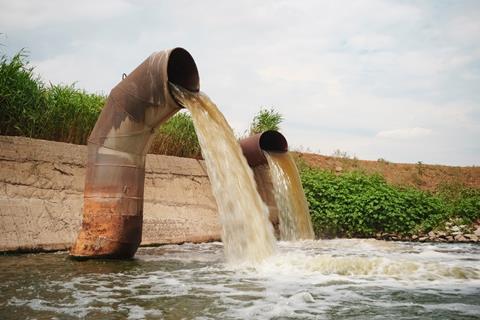Prozac and methamphetamine may be the cause of toxic nitrochloroform in tap water
Download this
Show students how potable water is made and the chemistry of sewage treatment with this starter slide on waste water treatment.
Download this
Show students how potable water is made and the chemistry of sewage treatment with this starter slide on waste water treatment: rsc.li/2RVeJhJ

Antidepressants like Prozac and stimulants like methamphetamine may be responsible for creating one of the most potent toxins found in tap water. Researchers have now suggested reasons why the toxin nitrochloroform forms in the purification of water.
Recycling waste water is used in areas where droughts are frequent and local water supplies are unreliable. To restore sewage to potable water quality, it first goes through regular waste water treatment. Then, it is passed through several purification stages including ozone treatment followed by chlorination. These steps kill microorganisms and remove chemical impurities.
Put this in context
Add context and highlight diverse careers with our short career videos showing how chemistry is making a difference and let your learners be inspired by chemists like Katty, who works as an analyst and was the 2020 chemical sciences apprentice of the year.
But sometimes, these processes create a toxin called nitrochloroform in the resulting drinking water. The toxin may form from antidepressants such as Prozac and stimulants like methamphetamine which are found in waste water. When the amines in these drugs come into contact with ozone, they react to form nitromethane. Then, during chlorination, the nitromethane converts into toxic nitrochloroform.
Use the starter slide with your class to help them recall some of the steps in treatment of water and understand how these steps can produce toxins.
Read the full story in Chemistry World.
Downloads
Starter slide Prozac forms toxins in tap water
PDF, Size 94.31 kbStarter slide Prozac forms toxins in tap water
PowerPoint, Size 0.41 mb









No comments yet